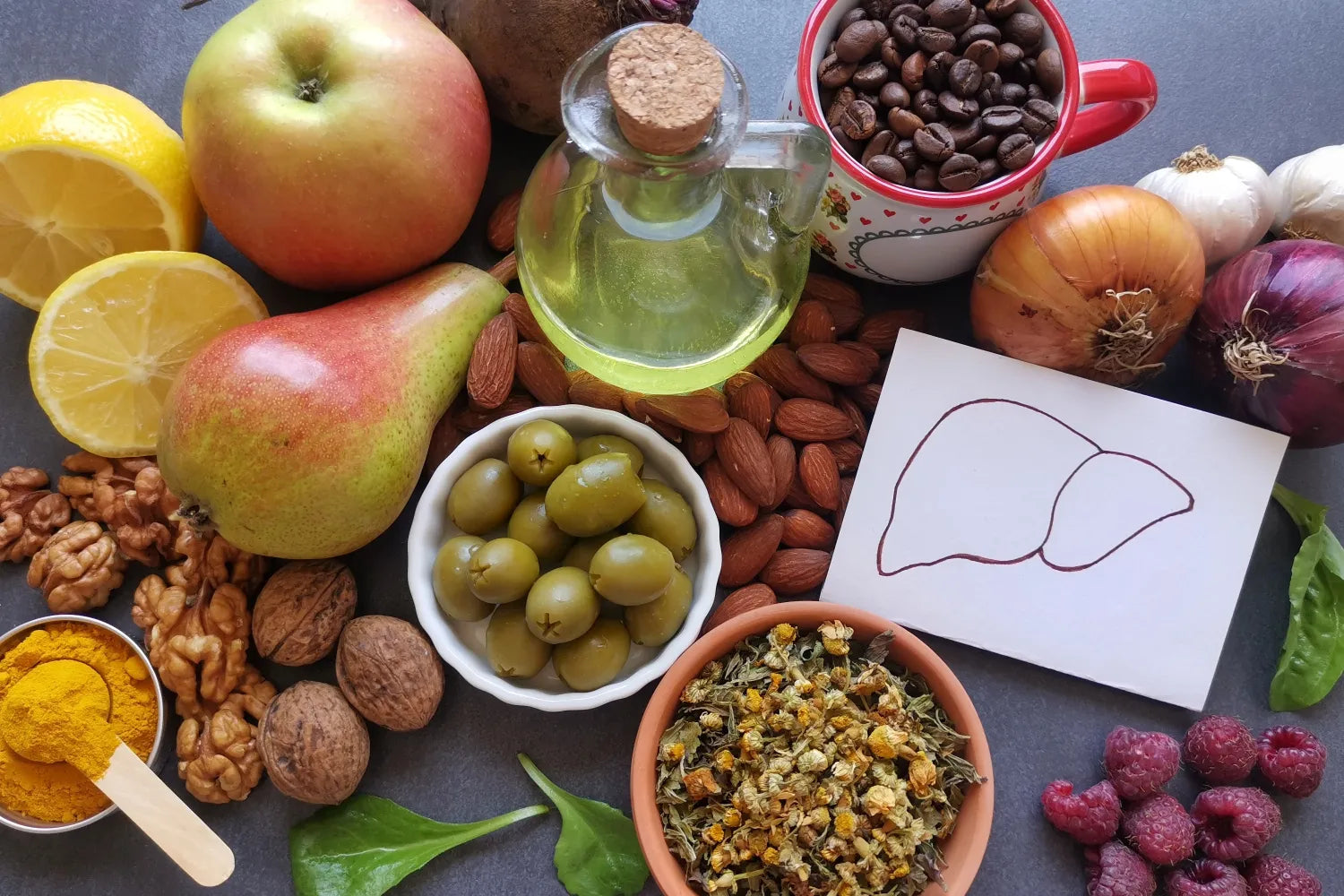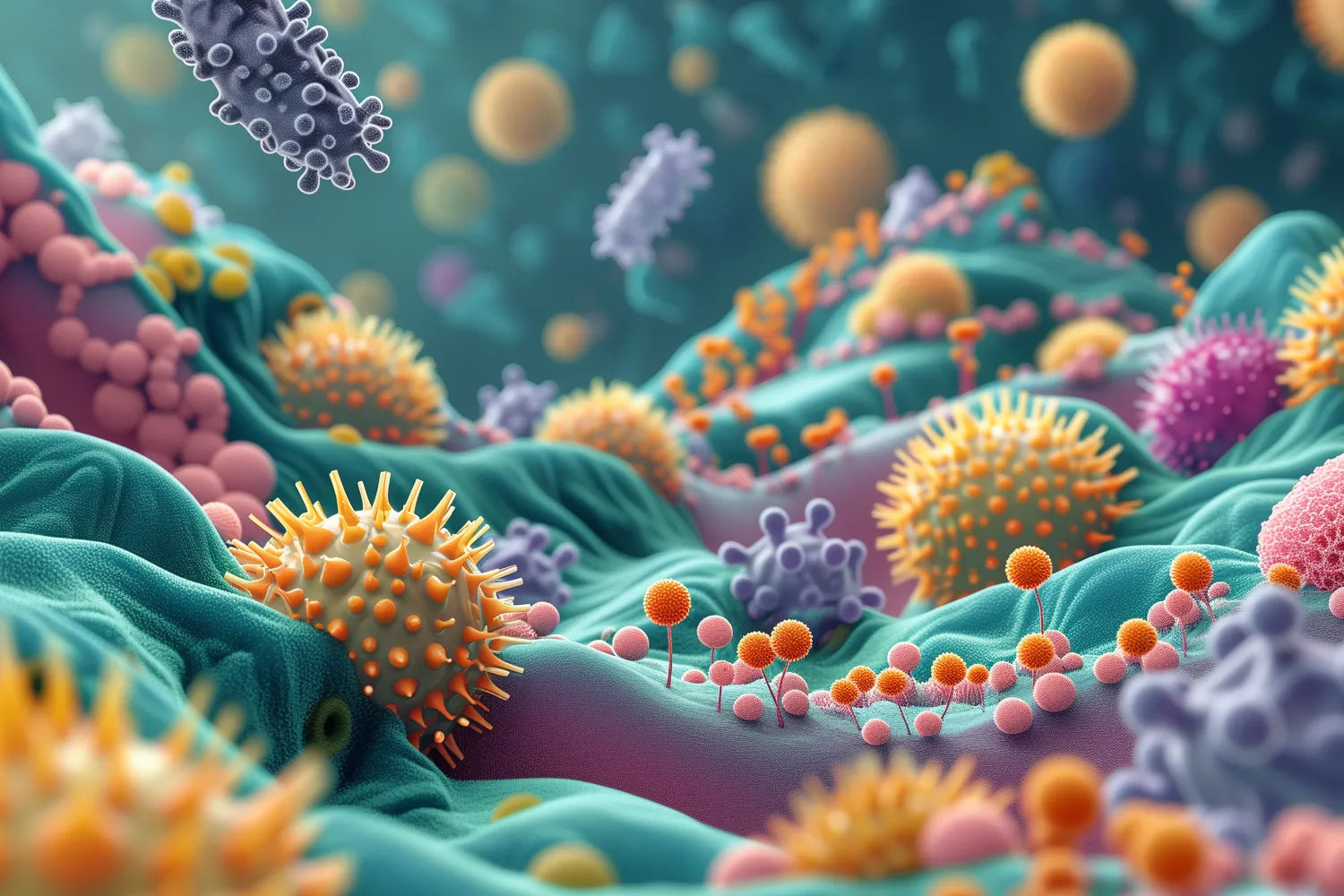
Dr. Eric Venn-Watson’s Highlights
Somehow, diet culture convinced us that eating fruit is bad. Maybe it was the low-carb trend, or maybe we were just legitimately eating too much of nature’s candy. Regardless of the reason, it’s time to allow fruit back on the menu.
Eating fruit is beneficial to your body. Fruit is packed with vitamins, minerals, and fiber, each of which your body needs to thrive.
Let’s go over the benefits of eating fruit, what happens if you eat too much, and how it compares to eating foods high in fat.
Benefits of Eating Fruit
Fruit is an excellent source of essential vitamins and minerals our body needs but cannot make on its own. Fruit is also filled with fiber, which helps keep us full, aids in digestion, and protects the colon.
Most fruits also offer antioxidant protection, which can further aid your body in fighting off disease and illness. Here’s what fruit does for your body.
Doses You With Vitamins and Minerals
There are 13 essential vitamins. Your body needs these vitamins to work properly, but you can’t make them on your own. As such, you need to get them from food sources, or from a supplement. Your body naturally absorbs vitamins from food better than it does from multivitamins.
Of the 13 essential vitamins, you can find all but D vitamins in fruit. Just one serving of fruit per day can meet your daily requirement of some vitamins.
Fruit is also a source of essential minerals. Potassium, for example, is important for our nerve health and also prevents muscle cramping. Many fruits, like bananas, are rich in potassium.
Supports Mental Health
Feeling down? A piece of fruit might be the perfect pick me up. A new study revealed that increasing daily fruit intake over a two-week period helped decrease feelings of sadness and stress and increased feelings of well-being.
Provides Antioxidants
Fruit is a natural source of antioxidants that help keep your body protected against free radicals. Free radicals are molecules that are unbalanced; they only have one electron. They are constantly in search of other molecules so they can steal an electron and become balanced once more.
When they find another molecule and steal its electron, it causes damage to the cell where the molecule lives. This damage can result in cells that either die or don’t function properly. When your cells don’t function properly, organs and systems begin to fail.
Free radicals are naturally occurring in our bodies, but other sources include the sun, cigarette smoke, and pollution.
Help Keep You Full
Taking in fewer calories is important when you’re trying to lose a few extra pounds. Replacing your usual snacks with fruit can help you cut calories and keep you feeling fuller for longer.
Fruit is lower in calories than many other snack foods and is packed with fiber. Fiber gives you a feeling of fullness as it is being broken down.
The sugar contained in fruit also takes longer to break down, so you’ll feel more energetic eating a piece of fruit than you would after eating a donut, which will cause your blood sugar to spike and then drastically fall.
Help You Stay Hydrated
Fruit is packed with water. Strawberries, for instance, are 92% water. Eating fruit can boost your hydration levels. Choosing fruit over another option means you’ll likely get more hydration.
Are There Any Negative Side Effects From Eating Fruit?
As with everything, moderation is key. Eating too much of any one food group is going to cause an imbalance in your diet that can become detrimental to your health. As nutritious as fruit may be, eating too much fruit can be unhealthy.
Fruit and Your Blood Sugar
When you eat, your body sends a message to your pancreas to produce insulin. Insulin helps regulate the glucose from your food that has entered your bloodstream. Insulin helps your body decide if this glucose is needed immediately for energy, or should be stored in the liver for later use.
When you eat a donut, your blood sugar, or glucose, spikes. Insulin levels rise, and if you don’t need that much sugar for energy, it gets stored. This process happens quickly with donuts and other simple carbohydrates. It’s why you feel energized immediately after eating them and then crash twenty minutes later.
When you eat a piece of fruit, it takes longer for your body to break down the molecules into glucose. This results in a steady and consistent blood sugar level that is better for your body in the long term compared to eating simple sugar.
However, if you eat too much fruit, it will essentially have the same effect on your blood sugar levels as eating a donut. Just so you know, you’d need to eat a lot of fruit to reach this level of anti-benefit. Most of the time, the fruit will make you feel full long before you’ve eaten too much.
Bloating
Fruit is an excellent source of fiber, and it’s natural to feel a little bloated after you eat an apple. However, if you’ve significantly increased your fruit intake, expect gastrointestinal discomfort to possibly follow.
While bloating and gas are natural parts of the digestive process, the amount of fiber in a piece of fruit makes it especially easy for you to develop these symptoms if you’re eating a lot of it.
Acidity
Many fruits have high levels of acidity which can be hard on your teeth. Eating highly acidic foods without taking proper aftercare measures can slowly damage the enamel on your teeth. Preventing enamel damage is easy. Simply brush and flush your teeth after eating acidic fruits (like citrus fruits).
Isn’t Fruit the Enemy? What About Fat?
We’re all influenced by diet culture, and it can be hard to determine what foods are currently on the naughty list. The current generation has seen the vilification of both fruit and fat. Are they both bad? The short answer is no.
Why Fat Is Okay
Just like fruit, fat got a bad rap. In the mid-1970s, the government issued health guidelines for millions of Americans telling them to stop eating fat — all of it — because it could increase the chances of developing heart disease.
It was a good plan, but scientifically, it fell flat. Currently, Americans are still suffering from heart disease, along with a myriad of other health problems like high blood pressure, unhealthy cholesterol, insulin resistance, and excess weight. Avoiding fat was supposed to make us healthy, so what happened?
As it turns out, not all fat is bad.† Some fat, in fact, is essential for our bodies to maintain optimal health. In the last few years, a growing body of research has led to a major hypothesis about a particular odd-chain, saturated fatty acid; we need it to survive.†
Elevate your cells. Elevate your self.
Pentadecanoic Acid
This fatty acid, known as pentadecanoic acid (aka C15:0) can help support total health and wellness at the cellular level.*
As we get older, our cells begin to break down and become fragile, making us weak and susceptible to age-related illness.
C15:0 digs into our cells to boost their fighting power by:†*
- Strengthening cell membranes. Membranes protect our cells from external stressors, but over time, they become less sturdy. C15:0 gets into our cell membranes to strengthen them, keeping them strong and ensuring the protection of our cells.
- Boosting mitochondrial function. Our cells are powered by their mitochondria, but as we age, mitochondrial function begins to decline. Studies show that C15:0 improves mitochondrial function by 45%.
C15:0 also has the ability to help support our mind and body health, which makes it a great accompaniment to your returning love of fruit. By binding with receptors in the body called PPARs that control mood, appetite, sleep, and immunity, C15:0 helps support these areas of our total health.†*
Sources of C15:0
You won’t find C15:0 in a fruit. In fact, it’s hard to find much of it in anyone’s diet.
C15:0 is found in trace amounts in full-fat dairy products like whole milk and butter, and in some fish. The best way to get your daily dose of C15:0 is by taking a supplement. Fatty15 is the only supplement to offer a full day’s worth of C15:0 in pure, vegan form.
FA15™ is the pure powder and vegan-friendly form of C15:0 that helps support your health, filling just one daily capsule currently available on the market: fatty15.
Fruit and Fat for the Win!
Stop avoiding fruit and fat and enjoy the benefits of consuming both. Fruit is packed with essential vitamins, minerals, and fiber that can keep you feeling satiated and help keep you well.
While you’re busy breaking outdated dieting rules, make sure you’re taking fatty15 each day. Fatty15 is the easy way to support your cells and give them a fighting chance against age-related illness.
Sources:
Vitamins and Minerals for Older Adults | National Institute on Aging
What Happens to Your Body When You Eat Fruit | Eat This Not That

Eric Venn-Watson M.D.
CEO, Co-Founder
Senior Scientist, Co-Founder
Eric is a physician, U.S. Navy veteran, and Co-founder and COO of Seraphina Therapeutics. Eric served over 25 years as a Navy and Marine Corps physician, working with the special forces community to improve their health and fitness. Seraphina Therapeutics is a health and wellness company dedicated to advancing global health through the discovery of essential fatty acids and micronutrient therapeutics.
You May Also Like...
10 Foods Good for Your Liver: The Ultimate Guide
Your liver does a lot for you. If it had a voice of its own, it might ask you to eat more veggies and cut back on your Old Fashioneds. Unfortunately, the liver doesn’t receive a lot of attention until...
How To Improve Your Gut Microbiome: 6 Tips
Interested in how to improve your gut microbiome? We’ve got six tips to help your gut thrive and improve your overall digestion.


